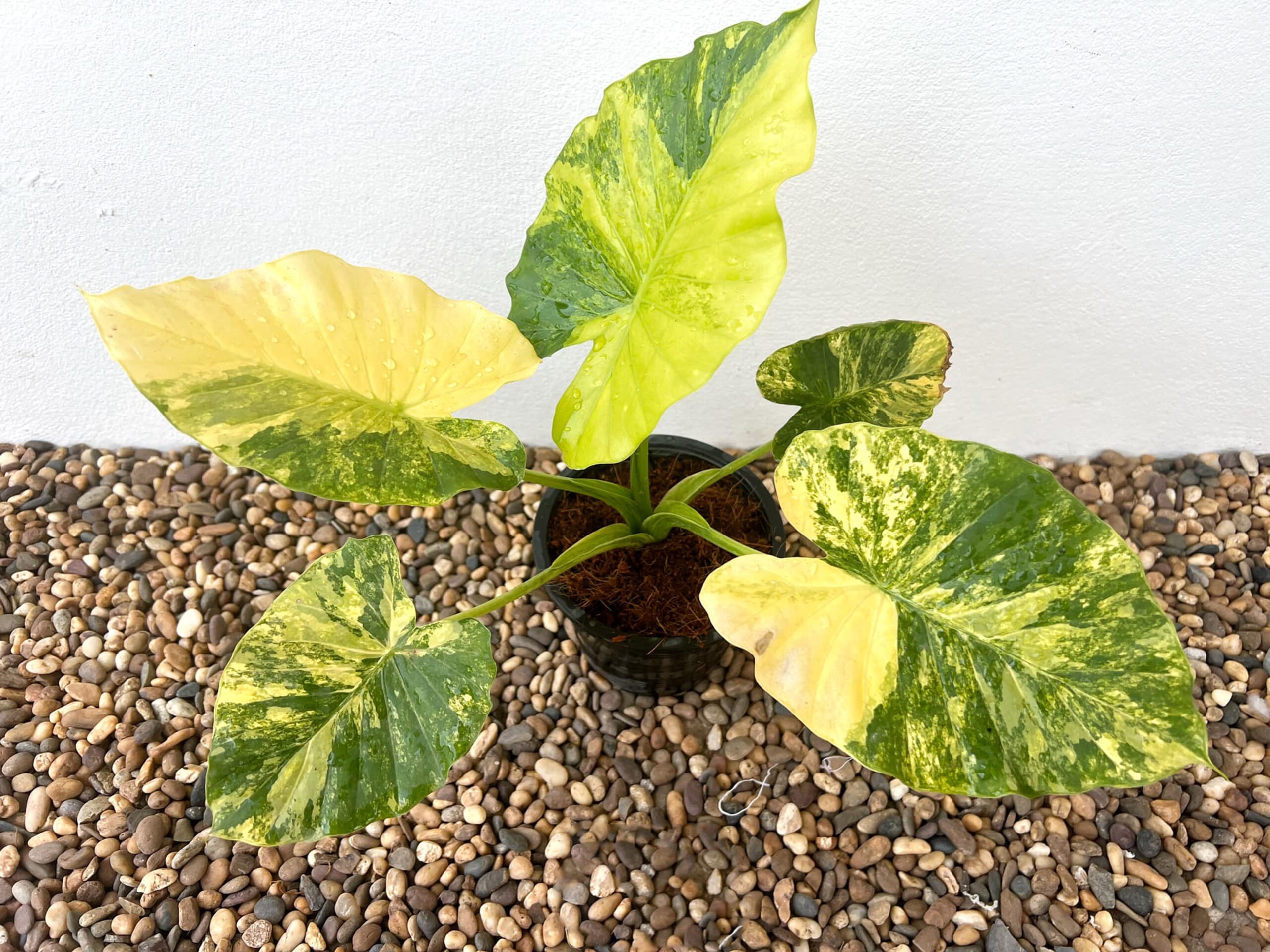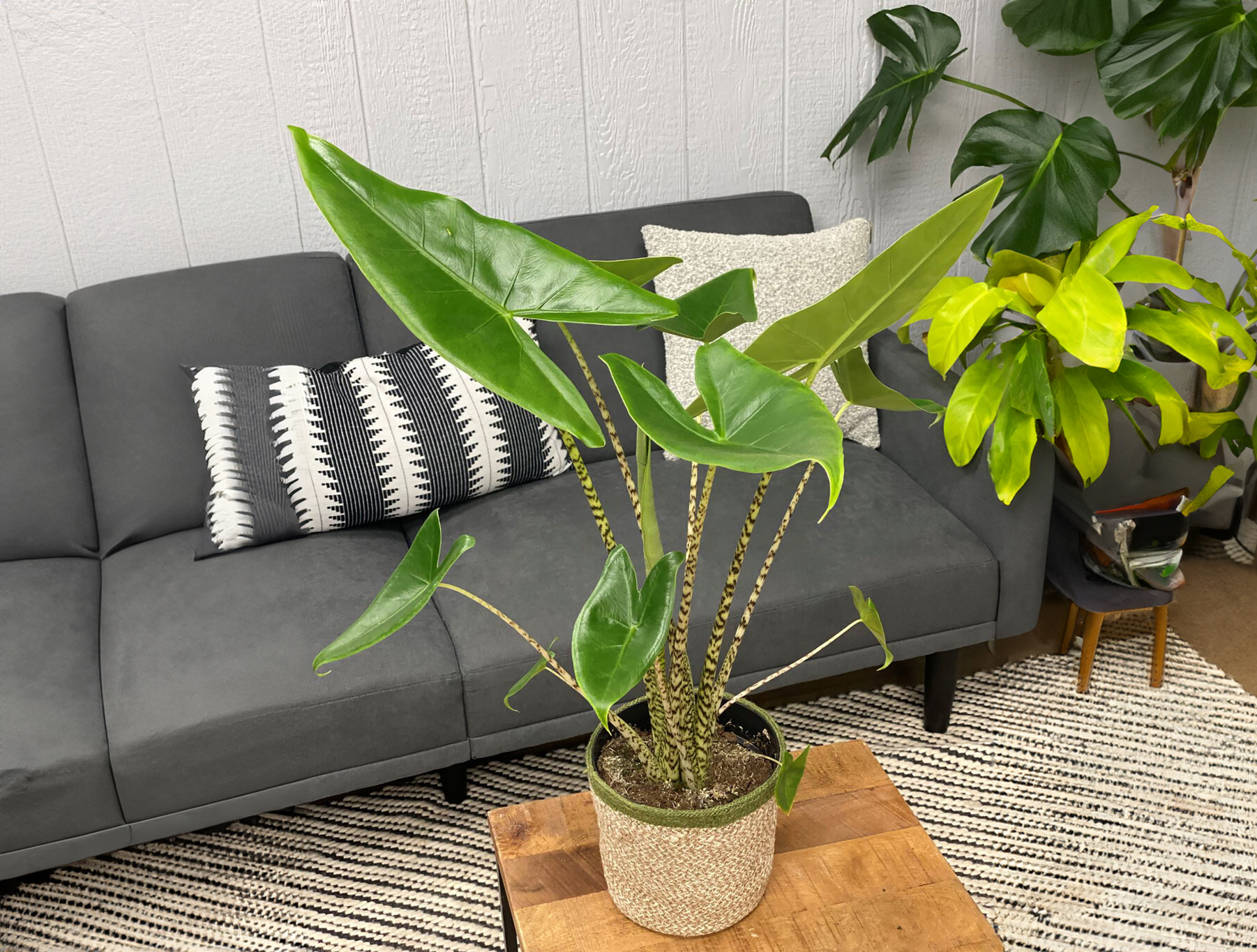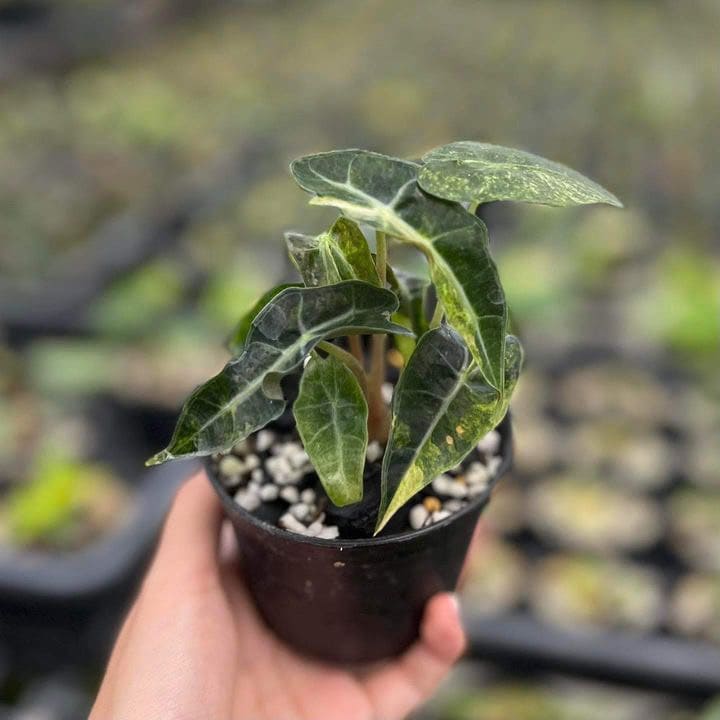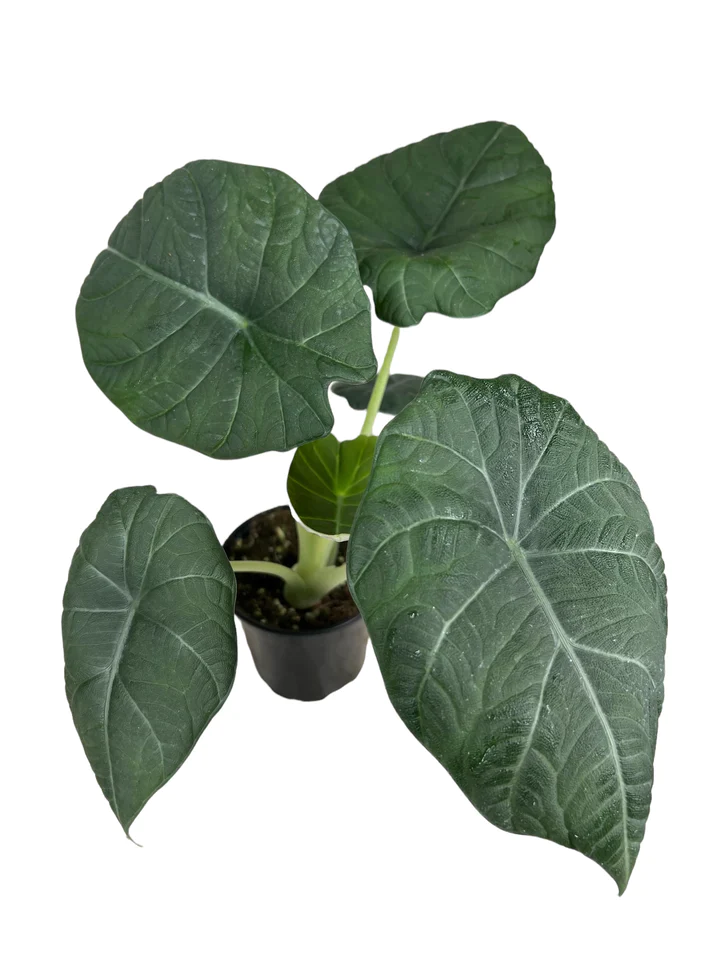Alocasia Overview
Alocasia is a genus of broad-leaved perennial plants that are increasingly popular as houseplants. Often called elephant ears due to their large heart-shaped leaves, alocasias add a tropical flair to indoor spaces. In this article, we will provide an overview of alocasia care and cultivation.
There are around 80 recognized species of alocasia, most native to tropical and subtropical Asia and Eastern Australia. These plants thrive in warm, humid environments and many types grow quite large in outdoor landscaping. When grown as houseplants, most remain more compact.
Key traits
- Tropical perennials grown for foliage
- Native to Asia and Australia
- Prefer warm humid conditions
- Range greatly in size
- Distinctive leaves shape
Alocasias are not the easiest houseplants and do require some specialized care. But their stunning leaves make them worthwhile for enthusiasts looking to expand their plant collection.

Growing alocasia as houseplants offers unique challenges and rewards. With good care, they can remain attractive indoor specimens for years.
Light
- Require bright, indirect light
- Some direct sun okay
- Leaves will burn if too much sun
- Near south or west window ideal
Alocasias need bright light to thrive, but direct hot sun will damage leaves. Place them in front of a bright window filtered by a sheer curtain. Provide adequate sunlight while preventing leaf burn.
Watering
- Keep soil consistently moist
- Allow to partially dry between waterings
- Drooping leaves indicate under-watering
- Yellow leaves can mean over-watering
Getting the watering schedule right is key for healthy alocasia plants. Let the soil dry slightly between waterings, but don’t let plants wilt. Monitor moisture and adjust your schedule accordingly.
Temperature & Humidity
- Prefer minimum 60°F (16°C)
- Ideal range is 70°F to 80°F
- Need 50% humidity minimum
- Mist leaves or use pebble tray
Alocasias prefer warm conditions with high humidity. Maintain house temperatures over 60°F. supplemental humidity via misting and pebble trays helps satisfy their preference for moist jungle-like environs.
Many alocasia species and cultivars are available to add lush foliage and visual drama to indoor plant displays. Some of the most popular varieties include:
Alocasia Zebrina
- Shiny dark green leaves with contrasting white veins
- Compact variety good for containers
- Requires bright light, consistently moist soil
With velvety leaves marked by prominent whitish veins, Alocasia zebrina provides unique texture and contrast. One of the most frequently grown alocasias, it stays relatively small, topping out around 2 feet.
"Explore the Exceptional 2023 Alocasias Variegata Collection: A Curated Selection of the Rarest and Most Unique Varieties Available."

Alocasia Amazonica
- Impressive 2+ foot long leaves
- Stems and leaf veins are purple-tinged
- Needs lots of space, prefers partly sunny spots
A tropical show-stopper, Alocasia amazonica has leaves that can reach over 2 feet in length! This variety needs room to grow and show off its ginormous foliage. The purple-green color is an added bonus.

Alocasia Maharani
- Blue-gray leaves with pale green veins
- Compact growth under 2 feet tall
- Easy to grow but slower than other types

If you want something more subtle but no less beautiful, consider Alocasia maharani. Its distinctive bluish foliage stands out without dominating the space. This manageable variety adapts readily to indoor life.
- Alocasias are tropical plants with large, heart-shaped leaves
- Provide warm temps, lots of humidity, and bright indirect light
- Many interesting varieties with colorful or variegated foliage
- Keep soil consistently moist but not waterlogged
- Monitor plants closely and make adjustments as needed
With their huge ornamental leaves in a variety of hues, alocasias bring drama to indoor displays. Care for these tropical beauties properly and you’ll be rewarded with years of enjoyment watching them flourish. Just be prepared to provide the right warm, humid, bright environment they require.
Alocasias are not the easiest houseplants, but their stunning tropical foliage makes growing them very rewarding. To keep your alocasia thriving indoors, focus on providing the light, humidity, moisture, and temperatures these jungle plants prefer. Pick an attractive variety like Alocasia zebrina and make sure it stays nice and warm in your home with frequent misting and watering. With good basic care tailored to their preferences, alocasias will grace your home with lush elegant foliage for years to come.
See more 5 Tips to Grow Alocasia Indoors: Maximize Your Elephant Ear Plant!
https://bit.ly/489F9Ch
Basic Alocasia Facts
There are around 80 recognized species of alocasia, most native to tropical and subtropical Asia and Eastern Australia. These plants thrive in warm, humid environments and many types grow quite large in outdoor landscaping. When grown as houseplants, most remain more compact.
Key traits
- Tropical perennials grown for foliage
- Native to Asia and Australia
- Prefer warm humid conditions
- Range greatly in size
- Distinctive leaves shape
Alocasias are not the easiest houseplants and do require some specialized care. But their stunning leaves make them worthwhile for enthusiasts looking to expand their plant collection.

Caring for Alocasia Indoors
Growing alocasia as houseplants offers unique challenges and rewards. With good care, they can remain attractive indoor specimens for years.
Light
- Require bright, indirect light
- Some direct sun okay
- Leaves will burn if too much sun
- Near south or west window ideal
Alocasias need bright light to thrive, but direct hot sun will damage leaves. Place them in front of a bright window filtered by a sheer curtain. Provide adequate sunlight while preventing leaf burn.
Watering
- Keep soil consistently moist
- Allow to partially dry between waterings
- Drooping leaves indicate under-watering
- Yellow leaves can mean over-watering
Getting the watering schedule right is key for healthy alocasia plants. Let the soil dry slightly between waterings, but don’t let plants wilt. Monitor moisture and adjust your schedule accordingly.
Temperature & Humidity
- Prefer minimum 60°F (16°C)
- Ideal range is 70°F to 80°F
- Need 50% humidity minimum
- Mist leaves or use pebble tray
Alocasias prefer warm conditions with high humidity. Maintain house temperatures over 60°F. supplemental humidity via misting and pebble trays helps satisfy their preference for moist jungle-like environs.
Popular Alocasia Varieties
Many alocasia species and cultivars are available to add lush foliage and visual drama to indoor plant displays. Some of the most popular varieties include:
Alocasia Zebrina
- Shiny dark green leaves with contrasting white veins
- Compact variety good for containers
- Requires bright light, consistently moist soil
With velvety leaves marked by prominent whitish veins, Alocasia zebrina provides unique texture and contrast. One of the most frequently grown alocasias, it stays relatively small, topping out around 2 feet.
"Explore the Exceptional 2023 Alocasias Variegata Collection: A Curated Selection of the Rarest and Most Unique Varieties Available."

Alocasia Amazonica
- Impressive 2+ foot long leaves
- Stems and leaf veins are purple-tinged
- Needs lots of space, prefers partly sunny spots
A tropical show-stopper, Alocasia amazonica has leaves that can reach over 2 feet in length! This variety needs room to grow and show off its ginormous foliage. The purple-green color is an added bonus.

Alocasia Maharani
- Blue-gray leaves with pale green veins
- Compact growth under 2 feet tall
- Easy to grow but slower than other types

If you want something more subtle but no less beautiful, consider Alocasia maharani. Its distinctive bluish foliage stands out without dominating the space. This manageable variety adapts readily to indoor life.
Key Takeaways
- Alocasias are tropical plants with large, heart-shaped leaves
- Provide warm temps, lots of humidity, and bright indirect light
- Many interesting varieties with colorful or variegated foliage
- Keep soil consistently moist but not waterlogged
- Monitor plants closely and make adjustments as needed
With their huge ornamental leaves in a variety of hues, alocasias bring drama to indoor displays. Care for these tropical beauties properly and you’ll be rewarded with years of enjoyment watching them flourish. Just be prepared to provide the right warm, humid, bright environment they require.
Conclusion
Alocasias are not the easiest houseplants, but their stunning tropical foliage makes growing them very rewarding. To keep your alocasia thriving indoors, focus on providing the light, humidity, moisture, and temperatures these jungle plants prefer. Pick an attractive variety like Alocasia zebrina and make sure it stays nice and warm in your home with frequent misting and watering. With good basic care tailored to their preferences, alocasias will grace your home with lush elegant foliage for years to come.
See more 5 Tips to Grow Alocasia Indoors: Maximize Your Elephant Ear Plant!
https://bit.ly/489F9Ch
Nhận xét
Đăng nhận xét